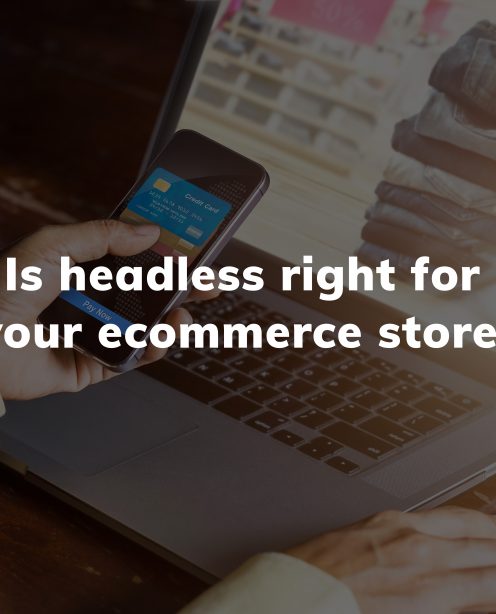Some folk advocate not needing a brief at all. Instead you do your homework, research and filter solutions and potential suppliers and find your way to 2-3 agencies that you know could do the job and make a decision based on a series of meetings, discussions and chats. I think that's honourable (and meetings and discussions are invaluable as part of any procurement process) but ultimately it's still risky.
With any choice, you want to be able to compare apples with apples (vs apples with technobabble). Conversations alone increase the chances that some level of important detail could too easily be missed or papered over. Instead a good brief allows you get proposals which respond to the same needs and requirements that need to be understood and responded to. A good brief is also key in setting the scene in terms of expectation - it gives us a sense of how ambitious you want to be and so in turn how ambitious and creative we can be. Crucially it also puts a stake in the ground for the scope and complexity of the project. It is the best opening gambit to any conversation.
So what is the 'right stuff' when it comes to a digital brief for a website?
We've put together a handy worksheet (a project brief template) to help you capture your vision for your project but a good project brief will answer a number of key questions:
- What are your aims?
- What are the constraints?
- Who is involved?
- What kind of response are you looking for?
It doesn't need to be chapter and verse but there will be a lot of information underneath each of those, so breaking it down further, we're typically looking for information about:
- Who you are and what you do
- Your audience(s)
- Your team and how you work
- Aims of the project and measuring success
- The challenges
- Your content
- Your brand and thoughts about design
- Functionality
- Timings
- Timetable for response
- Budget
- The future
- What kind of response are you looking for?
Who you are and what you do
We always want to know more about you as an organisation and company - who are you, what do you do, why, what products and services do you provide etc. We're keen and interested to know MORE not less about who we hope to work with.
As part of this, tell us your size and give an indication of your scale of operations - number of staff, turnover, where your market is, how long have you been established. A shorthand method for describing yourself might include giving us a list of terms you'd use to describe your company - young, vibrant, contemporary, online, creative, established, considered, brash, hopeful ...
Describe your business and give us a sense of your offering. For example, if you're an arts or heritage organisation with an ongoing programme of events some or all of which are ticketed, then describe your programme - are you a receiving or producing venue? Do you have have seasons, collections and/or festivals of events? Do you have events which are exceptions to the vast majority of the rest of your programme (e.g. panto)? What artforms and genres do you cover? If you can share it, how many tickets do you sell, what's your blended average number of tickets per transaction and the average sale value per transaction? What's your split between group and non-group bookings? If you run a membership or friends scheme, how many members (friends or subscribers) do you have? What do they get by way of membership benefits? How much does it cost?
Your audience(s)
Just as you do, we love to know as much as possible about your audiences. We're obsessed by it - we always look to analyse any audience data you might have and as part of any project we might run surveys, workshops and interviews to get even further under their skin. Succeed with that and we're even more likely to create a design and user experience that exceeds their needs and expectations.
So, thinking about your users, describe your target audience. Think about whether the audience mix is the same or different offline vs online (e.g. is your online target audience your core audience or your emerging audience, i.e. the one you're looking to become your core audience). Do you have research or analysis we can catch sight of - anything from Google Analytics through to more detailed audience development or marketing research (e.g. using Audience Spectrum or MOSAIC data). We don't need to know the detail at the brief stage but the extent of what you have will really help with our creative and ideation process.
Your team and how you work
We like to know who we're going to be potentially working and collaborating with. So let us know who will be working on the project itself and be seeing it through to launch and, if different, who will then be managing it post-launch on an ongoing basis.
Apart from different internal stakeholders, you may have external stakeholders too - this could be other 3rd party suppliers (ticketing or CRM system providers) but it could just as easily be real users in the project as well - e.g. your own audience or user groups.
Aims of the project and measuring success
Every project needs goals so that we know what we're all working towards. In time we love to turn those into meaningful KPIs so we can monitor how things are going. Describe what you are you trying to achieve via the project including, once completed, how you will know the project has worked.
Outlining the goals of the project will help to highlight what problem(s) it is that you are addressing with a new website. So think about how you will judge whether the new site has been a success - it might be an increase in online sales or an increase to your membership or subscribers or a channel shift from telephone to online sales. Either way, be as clear as you can even at this early stage - in turn we can begin to visualise this picture of success.
The challenges
This can be a hard one but what do you see as the biggest challenge? It might relate to the above goals but not necessarily. If you've got a lot of content, it could be to do with the scale and complexity of your offering and finding the easiest, most user friendly method to present that online.
So navigation, structure, signposts, user journeys and calls-to-action might be the trickiest aspects of the project. Or it could be technical - for example integrating with a system you know to be outdated and difficult to work with. Knowing more about the biggest challenge, helps us to see the wood from the trees.
Your content
Content is king and we (all) love content, so tell us what content you have. Do you produce all, some or none of it yourself - how much comes from external producers? What plans do you have for expanding your content (both in terms of types of content and scale) and how will that be resourced?
If some or most of your content comes from external sources (e.g. touring production companies or event promoters) what's the quality like? What internal resources do you have for content production across the different content types (that's primarily tone of voice and copy, images and video). This will help guide us in our thinking about how we might tackle the design of your site.
Your brand and thoughts about design
One of the fun bits - the creative look and feel of the new website. Be as expressive as you can (and want to be). Describe what kind of design impact you're shooting for, what response you'd love to your new design from site visitors. List some sites which really impress you from a visual design point of view (and not necessarily in the same sector as yourself) and include a note or two on why you like them and the crossover to your brand.
Speaking of brand, let us know what you have by way of brand guidelines and how extensive they are (e.g. do you have a working and approved organisational logo, approved organisational colours and typographical rules) and let us know if your guidelines incorporate digital guidelines as well - i.e. colours, typography etc specifically for web use. If you don't have any brand guidelines, then say so and give some form of steer on what brand elements you do have that are well established, well thought of and ought to be included in our thinking (e.g. even if it's 'just the brochure'). We can help develop online brand guidelines (or extend your existing brand guidelines) if we know the starting point.
Required functionality
What does the new website need to do, functionally? It's fine to think of this as a wishlist - a rundown of features and functionality you've identified for the new site. At this early stage we don't need full specification of each functional requirement (any agency would want to be part of helping to define that as the project develops).
However, it really helps if the list of functional requirements is prioritised. If you can, give some basic guidance on what it needs to do but most important is to prioritise them. It gives us a good indicator of which pieces can get the most technical and creative investment.
Timings
Often you won't have a detailed schedule for the project and that's fine - it’s a key part of the initial project effort, to establish a meaningful and realistic schedule or timeline that we will all deliver to. That said there are often important dates (not even necessarily related to the web project) that the project needs to work to - e.g. launch of new brand, new season programme, new CEO, new ticketing or CRM system going live.
So, do you have important dates and/ or deadlines which the web project needs to incorporate into the overall website schedule? Are these definitive or provisional? Think about content as well and specifically content production - the most common cause of delays in most projects comes from underestimating the time it takes to produce content - i.e. the whole process involved in curating all the copy, images, videos, attachments, page and section titles, calls-2-action and common keywords of your web project.
Timetable for response
When do you need to hear from us by, in order to get things moving in time to hit your deadline?
We need a reasonable amount of time to respond (including time to ask questions as well as put together our proposal). Two weeks is a minimum, unless you're really up against it and don't mind receiving a limited response.
Budget indication
Knowing a budget range - and a range is fine, you don't need to be absolutely specific - is important. Not only is it a shorthand in establishing compatibility (and so save you and whoever you are talking to a lot of time) but it means you will get better, more accurate and more comparable quotes as a result.
Sometimes you might not know the budget - for example if you're putting together a business case internally and/ or for an external funding bid. That's obviously legitimate but in both scenarios it's speculative, not assured, that the project is going to happen. So be up front and reasonable on what you expect back as part of any proposal.
The future
It's good to future-gaze and ask questions such as what does the future hold and what do you want it to look like? For example do you have known future projects or plans that will potentially impact on the web project (e.g. switching ticketing provider; expanding into a new market; a rebranding project) further down the line?
We might not be able to develop solutions to those future needs right now (not least because they're not fully formed yet) but having a heads up on it means we can make more informed choices and potentially lay some of the ground for these pieces.
What kind of response are you looking for?
Finish your website design brief with a short conclusion, outlining what kind of response are you'd like back. Be clear and direct about what you want agencies to tell you. We're happy to provide detailed information from relevant portfolio projects (including references and recommendations) as well as ideas and good thinking around difficult challenges we see in your brief.
We’ll suggest realistic timescales and what we would need in order to get up and running on the project and we're happy to outline our process and to provide a breakdown of the budget so you can clearly see where we'd be investing our time on your project. We can also provide info about our team and arrange a demo of Drupal in action, usually from a project similar to yours.





